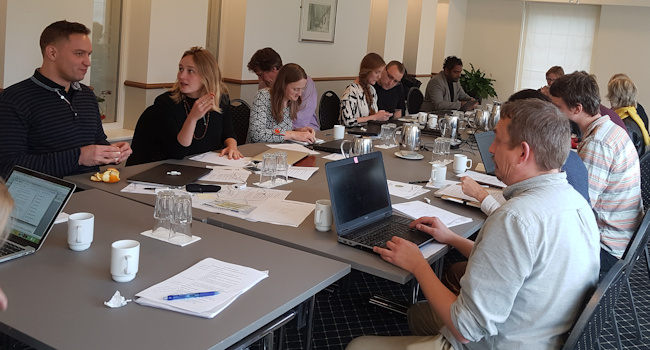Background
Aalborg University (AAU) was one of the reform universities which were established during the 60’s and the 70’s.
McMaster, Maastricht, Roskilde and Aalborg Universities implemented institutional PBL models that have proven their efficiency, both in terms of learning and in terms of developing students’ competences relevant for working life.
McMaster and Maastricht University started using problem-based learning while Aalborg and Roskilde University applied problem-oriented and project-organised (project-based) learning models (Barrows, 1985; Illeris, 1974). Although the specific educational models vary across these universities, they are based on the same learning theories and philosophies, namely that learning should take its departure in students’ contextual problem understanding, be self- or participant directed, team-based and employ an interdisciplinary approach (Kolmos & Graaff, 2014).
The original PBL universities are often regarded by other institutions as educational living labs where one can experience alternative pedagogical models and learn from research and practice. Internationally, Aalborg University has influenced the direction of problem based education in specific subject areas significantly, particularly in the field of engineering and science, and is internationally recognised for its pedagogical model.
Literature indicates that the implementation of PBL principles is more often to be found at the course level where students are doing smaller disciplinary projects (Savin-Baden, 2014).
The work done at Aalborg University is, thus, all the more significant and testifies to the uniqueness of the Aalborg (and Roskilde) models of problem and project based learning – especially as they have a unique system approach.
Goals
As mentioned on the front page, the overall goal with PBL Future is to develop research based directions for problem- and project-based learning (PBL) in a Digital Age in order to ensure:
- That the AAU model for PBL remains a world acclaimed, radical pedagogical innovation;
- That AAU remains at the international forefront in developing PBL;
- And that students develop PBL competences that are relevant in a digital age.
This project will re-conceptualise how PBL could operate in new formats, based on the core principles of PBL, while exploring and developing new digital approaches that operate in and open up for new hybrid PBL learning models. An important goal of the project is to have a high degree of global and local impact. This will be achieved by setting a research agenda for PBL in a digital age that will attract international attention as new directions for more student-centred learning is a global need.
The ambition of the project is that AAU will be among the top-five institutions in the global PBL ranking.

